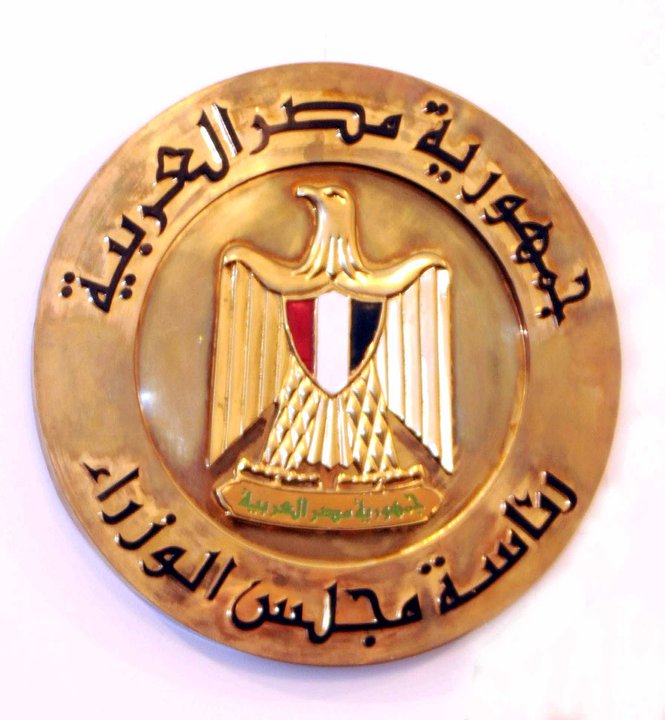Egypt’s anticipated cabinet reshuffle was announced on Tuesday, as nine new members were sworn in and made part of Prime Minister Hesham Qandil’s cabinet.
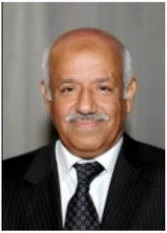
Ahmed Suleiman, Minister of Justice
Before replacing Ahmed Mekki as head of the ministry of justice, Suleiman was the assistant to the minister of justice for judicial studies and the head of the Court of Appeals. Suleiman had been previously on loan to the United Arab Emirates twice, and was the chairman of the Minya Judges’ Club from 2002 until 2004 and again from June 2011 until now. Suleiman practiced law in Minya, Beni Suef, and Cairo in the 1990s.
He received his law degree from Cairo University.
The 53-year-old legal professional was recently a critic of prosecutors who staged protests and strikes amidst a time in which much of the judiciary found itself at odds with the president. Suleiman was also head of the Independent Judges Movement and openly criticised President Mohamed Morsi’s November constitutional declaration.
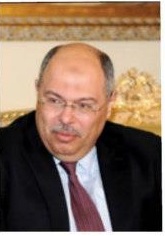
Hatem Bagato, Minister of Parliamentary Affairs
Bagato replaced Omar Salem as the minister of parliamentary affairs. He received his bachelor’s of law from Alexandria University in 1982 and diploma in general law in 1989. He was an advisor to the minister of justice for legislation from 2006 to 2010. He was vice-chairman of the Supreme Constitutional Court before his appointment and following the passage of the constitution in December’s referendum. Before that he was part of a technical committee in the Supreme Elections Commission (SEC) in the country’s most recent presidential elections. He was also a member of the SEC in 2005 when ousted president Hosni Mubarak was re-elected.
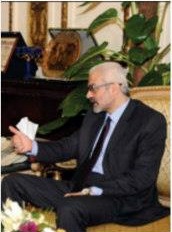
Alaa Abdel Aziz, Minister of Culture
Abdel Aziz has a PhD in cinema and has practiced as a professor at the High Cinema Institute. He is also a member of the Egyptian Film Critics Association and has written books and other pieces about film in Egypt and other Arab countries. He was also part of a research team that composed the Encyclopaedia of Jews, Judaism, and Zionism, an eight-volume collection of analyses examining the history of Judaism and Zionism in the region.
Last January he wrote a piece for an official Freedom and Justice Party website approving of the constitution which was passed in December and accused the opposition of illegitimately attempting to replicate the revolution against a popularly-elected president and said a counterrevolution was working to “re-enslave” the Egyptian people.
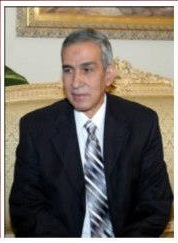
Ahmed Mahmoud Al-Gizawy, Minister of Agriculture
Al-Gizawy replaced Salah Mohamed Abdel Momen as the minister of agriculture. He received his PhD in agricultural sciences in 1978 from Ain Shams University and was a professor in the Faculty of Agriculture before becoming vice-dean from 2003 until 2007 and then dean in 2007. He is also the chairman of the Committee for Agriculture in the FJP.
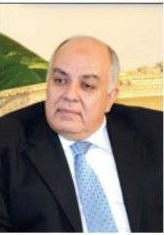
Amr Darrag, Minister of Planning and International Cooperation
Darrag was appointed minister of planning and international cooperation to replace Ashraf El-Araby.
Darrag, a founding member of the FJP, was a member of the Constituent Assembly, and served as the FJP’s secretary general in Giza governorate and a member of the party’s National Committee.
Born in October 1958, he received his bachelor’s degree in civil engineering from Cairo University in 1980. He later pursued his master’s degree in soil, mechanics and foundations from the same university in 1984, and later received his doctorate degree in soil, mechanics and foundations from Purdue University in 1987.
From 1987 to 1988, he was a senior engineer for Erdman and Associates Inc. in Orlando, Florida.
He was the chairman of the Board of Directors at Egyptian engineering consultancy firm Engineering House of Expertise. Additionally, he worked as an engineer at the Arab Contractors Company.
Darrag was also a professor of mechanical engineering at Cairo University. He served as the vice-president of the Staff Club at Cairo University from 2000 to 2009.
He has denied that Copts are being persecuted in Egypt and rejects the use of the term “sectarian tensions”.
Darrag ran against liberal Amr El-Shobaky for the professional seat for individual candidacies in Egypt’s 2011 parliamentary elections in Giza.
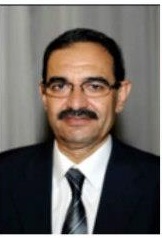
Fayad Abdel Moneim, Minister of Finance
Fayad Abdel Moneim was appointed the new finance minister replacing Al-Morsi Hegazy.
Abdel Moneim, 56, completed his bachelor’s degree in commerce in 1980. He then pursued his master’s degree in economics in 1993 from Al-Azhar University, publishing his thesis titled “Organising the supply of money in Islamic thought and its effect on society’s economic performance”.
He later received his doctorate degree from Al-Azhar University in Islamic economics in 1999 where he wrote a thesis on “The evaluation of the economic performance of banks, applied to the Islamic banks of Egypt”.
Abdel Moneim, who has no former experience in the government, is a specialist in Islamic economics and banking.
He held several professional positions where he was an economic expert at the Centre for Economic Consultancies and Studies in Cairo, and a manager of the Islamic Centre for Research, Training and Consultancy for the International Islamic Investment and Development Bank in Cairo. He was also the Islamic International Bank’s legal inspection committee secretary from 1993 to 2003.
Furthermore, Abdel Moneim has been an economic consultant for many institutions, namely at the Centre of Doctrinal and Economic Studies in Cairo and at Dar al-Ifta’s legal accounting department.
He was also a member of the board of Islamic studies at the Faculty of Science in Cairo University and president of the Economics Department in the Faculty of Commerce in Al-Azhar Univeristy, Women’s branch.
Abdel Moneim gave a number of training programmes to members of parliament, Islamic and traditional banks, and research centres in the Middle East where he shared his knowledge on Islamic banking and finance and economic challenges.
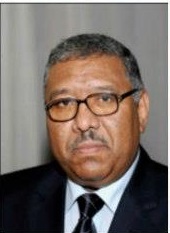
Ahmed Eissa Ahmed, Minister of Antiquities
Ahmed replaced Mohamed Said as the minister of antiquities. He received a doctorate in Islamic and Coptic antiquities from Assiut University and was the dean of the Faculty for Archaeology at South Valley University when he was appointed on Tuesday. He has contributed to restoration projects throughout the country, including Cairo and Sinai, and published research examining both Islamic and Coptic antiquities.
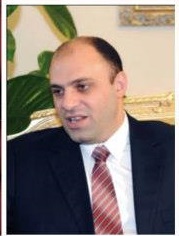
Yehia Hamed Abd El-Samie, Minister of Investment
Yehia Hamed Abd El-Samie, a brotherhood member, was appointed the investment minister, replacing Osama Saleh.
Abd El-Samie, 35, graduated from the Faculty of Alsun in 1999. In 2003, he received his master’s degree in public administration from the Arab Academy for Science, Technology and Maritime Transport. He also holds two diplomas in project management and sales from the American University in Cairo.
He was the president’s advisor for project management and the official spokesperson of President Mohamed Morsi’s presidential campaign.
He was previously the director of project management of one of the world’s leading telecommunications companies from 2004 till 2012.
Abd El-Samie is the second youngest minister to have held a government position after the late Mohamed Sirag El-Din who was 32 and led five ministries.
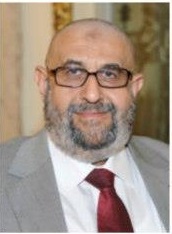
Sherif Hassan Hadarra, Minister of Petroleum and Natural Resources
Hadarra replaced Osama Kamel as the minister of petroleum and natural resources. He received his degree from Cairo University in mechanical engineering in 1976. He was an executive at Sumed Company and eventually became its director of technical engineering. While he is not a member of the Muslim Brotherhood, Hadarra is considered close to the Islamist group.
